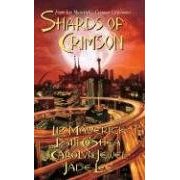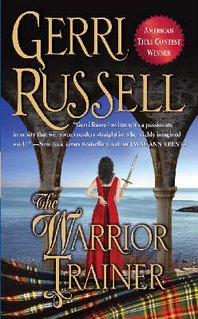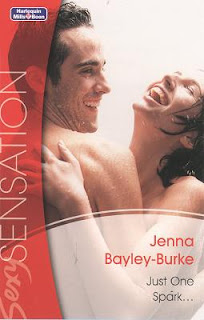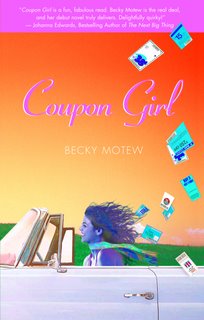
Today on Make-Believe Mondays I'm pleased to introduce my friend Bonnie Vanak. All my bellydancer friends will be thrilled to meet you here as they are always asking about books with bellydancing in the story. ;)
Bonnie, first, tell us a little bit about the manuscript you’re working on now.
Bonnie: I just finished my first Silhouette NOCTURNE book. The working title is Empath, and is slotted for December 2007. It’s about a gentle veterinarian seduced by a fierce warrior werewolf who must mate with her and turn her into a killer to destroy the shapeshifters stalking his pack. Maggie is an empath, a werewolf who heals with her touch. She’s been living as a human, blocking out any knowledge of being a wolf. Nicolas is a big, muscled werewolf who has devoted his life to killing the enemy to keep his pack safe and he extends this protection quite vigorously to Maggie, his mate. I love the dichotomy between these two. Nicolas is a killer and Maggie is nonviolent. In the end, their differences make them stronger. He forces Maggie to acknowledge her wolf and she exposes the tender, vulnerable side of Nicolas that he’s afraid to show to the world.
Debra: The dichotomy is fascinating. I look forward to reading their story.
Ray Bradbury said, “We are cups, constantly being filled. The trick is, knowing how to tip ourselves over and let the beautiful stuff out.” How do you keep your creative cup filled?
Bonnie: Excellent question! I love that quote, and have used it often. A good author friend, Jennifer Ashley, always reminds me to “fill the well” and take a break. It’s really necessary for us as writers to take a break and sit back and relax. For me, it’s watching a good movie, relaxing with my hubby on the beach near our home or just going for a walk and letting my imagination drift. If I had more time, I’d take more trips to places that inspire me. Part of EMPATH was written on the beach on the west coast, and the opening chapters are set there. That always inspires me; being able to research a location.
Debra: The beach does this for me as well. There is something about the ever changing ocean and those shifting sands.
Bonnie: For my Egyptian books, I’ve never traveled to Egypt but I find inspiration in books, magazine articles and television specials on Egypt. Just the idea of exploring ancient Egyptian history fills my well!
Debra: You and I both share a love of ancient Egpyt. I once pulled our son out of junior high when a famous Egyptologist visited our college to speak. He wanted to be an Egyptologist when he grew up and I think he still has the tape. One day perhaps we'll both go there.
Is there a point when your characters begin to come alive and you can see and hear them?
Bonnie: Definitely! I suppose it sounds odd, but my characters do surface and begin to speak their minds. In The Sword & the Sheath, my March Egyptian release, Tarik was quite assertive in stating his demands in wanting to seduce Fatima, the heroine assigned to guard him. And Fatima was equally demanding in her need to prove herself among the men. I remember writing one scene in Starbucks on a Sunday… it was the scene where Fatima watches women belly dance for Tarik and then one woman comes over to take him to her bed for the night. He refuses because he wants only Fatima, his beautiful Tima, his only love, not just the pleasures of the flesh. I could see and hear him as clearly as I could hear the orders at the counter for non-fat decaf mocha lattes!
Debra: I can't wait to read this story. It's every woman's dream to be the one and only.
Bonnie: I’m so thankful I was given the gift of words. Being a writer is a terrific way to express ourselves. We can soar the heights, explore places we’ve never visited, and mine the depths of our imagination. It’s hard work, sweat, tears and sometimes it feels like there’s blood on the keyboard, but I can’t imagine having a more fulfilling dream. I’m very grateful I have the opportunity to share my imagination with readers.
Thanks for the interview!
Debra: You're quite welcome, Bonnie. It was my pleasure.
You can visit Bonnie at my Myspace page: http://www.myspace.com/bonnievanak
Or at her blog: http://www.bonnievanakjournal.blogspot.com/
Bonnie, first, tell us a little bit about the manuscript you’re working on now.
Bonnie: I just finished my first Silhouette NOCTURNE book. The working title is Empath, and is slotted for December 2007. It’s about a gentle veterinarian seduced by a fierce warrior werewolf who must mate with her and turn her into a killer to destroy the shapeshifters stalking his pack. Maggie is an empath, a werewolf who heals with her touch. She’s been living as a human, blocking out any knowledge of being a wolf. Nicolas is a big, muscled werewolf who has devoted his life to killing the enemy to keep his pack safe and he extends this protection quite vigorously to Maggie, his mate. I love the dichotomy between these two. Nicolas is a killer and Maggie is nonviolent. In the end, their differences make them stronger. He forces Maggie to acknowledge her wolf and she exposes the tender, vulnerable side of Nicolas that he’s afraid to show to the world.
Debra: The dichotomy is fascinating. I look forward to reading their story.
Ray Bradbury said, “We are cups, constantly being filled. The trick is, knowing how to tip ourselves over and let the beautiful stuff out.” How do you keep your creative cup filled?
Bonnie: Excellent question! I love that quote, and have used it often. A good author friend, Jennifer Ashley, always reminds me to “fill the well” and take a break. It’s really necessary for us as writers to take a break and sit back and relax. For me, it’s watching a good movie, relaxing with my hubby on the beach near our home or just going for a walk and letting my imagination drift. If I had more time, I’d take more trips to places that inspire me. Part of EMPATH was written on the beach on the west coast, and the opening chapters are set there. That always inspires me; being able to research a location.
Debra: The beach does this for me as well. There is something about the ever changing ocean and those shifting sands.
Bonnie: For my Egyptian books, I’ve never traveled to Egypt but I find inspiration in books, magazine articles and television specials on Egypt. Just the idea of exploring ancient Egyptian history fills my well!
Debra: You and I both share a love of ancient Egpyt. I once pulled our son out of junior high when a famous Egyptologist visited our college to speak. He wanted to be an Egyptologist when he grew up and I think he still has the tape. One day perhaps we'll both go there.
Is there a point when your characters begin to come alive and you can see and hear them?
Bonnie: Definitely! I suppose it sounds odd, but my characters do surface and begin to speak their minds. In The Sword & the Sheath, my March Egyptian release, Tarik was quite assertive in stating his demands in wanting to seduce Fatima, the heroine assigned to guard him. And Fatima was equally demanding in her need to prove herself among the men. I remember writing one scene in Starbucks on a Sunday… it was the scene where Fatima watches women belly dance for Tarik and then one woman comes over to take him to her bed for the night. He refuses because he wants only Fatima, his beautiful Tima, his only love, not just the pleasures of the flesh. I could see and hear him as clearly as I could hear the orders at the counter for non-fat decaf mocha lattes!
Debra: I can't wait to read this story. It's every woman's dream to be the one and only.
Bonnie: I’m so thankful I was given the gift of words. Being a writer is a terrific way to express ourselves. We can soar the heights, explore places we’ve never visited, and mine the depths of our imagination. It’s hard work, sweat, tears and sometimes it feels like there’s blood on the keyboard, but I can’t imagine having a more fulfilling dream. I’m very grateful I have the opportunity to share my imagination with readers.
Thanks for the interview!
Debra: You're quite welcome, Bonnie. It was my pleasure.
You can visit Bonnie at my Myspace page: http://www.myspace.com/bonnievanak
Or at her blog: http://www.bonnievanakjournal.blogspot.com/




















